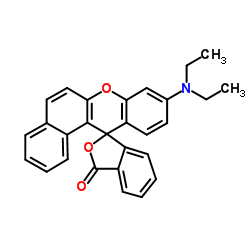91-68-9
| 中文名 | 3-羟基-N,N-二乙基苯胺 |
|---|---|
| 英文名 | 3-Diethylaminophenol |
| 中文别名 |
间羟基-N,N-二乙基苯胺
N,N-二乙基-3-氨基苯酚 3-二乙氨基酚 间二乙氨基苯酚 3-二乙氨基苯酚 |
| 英文别名 |
3-(diethylamino)phenol
EINECS 202-090-9 MFCD00002265 |
| 密度 | 1.04g/cm3 |
|---|---|
| 沸点 | 170 °C15 mm Hg(lit.) |
| 熔点 | 69-72 °C(lit.) |
| 分子式 | C10H15NO |
| 分子量 | 165.23200 |
| 闪点 | 141 °C |
| 精确质量 | 165.11500 |
| PSA | 23.47000 |
| LogP | 2.23840 |
| 外观性状 | 黑色固体 |
| 折射率 | 1.564 |
| 储存条件 | 本品应密封于阴凉避光处保存。 贮存于阴凉、通风的仓库内,远离火种、热源,避免阳光直射。与食用原料隔离贮运。搬运时轻装轻放,防止容器受损。 |
| 稳定性 | 剧毒,如吸入、食入、皮肤接触吸收是致命的。其燃烧产生有刺激性、腐蚀性及(或)有毒性的气体。 |
| 水溶解性 | <0.1 g/100 mL at 20.5 ºC |
| 分子结构 | 1、 摩尔折射率:51.71 2、 摩尔体积(cm3/mol):158.8 3、 等张比容(90.2K):403.8 4、 表面张力(dyne/cm):41.7 5、 极化率(10-24cm3):20.50 |
| 计算化学 | 1.疏水参数计算参考值(XlogP):无 2.氢键供体数量:1 3.氢键受体数量:2 4.可旋转化学键数量:3 5.互变异构体数量:3 6.拓扑分子极性表面积23.5 7.重原子数量:12 8.表面电荷:0 9.复杂度:123 10.同位素原子数量:0 11.确定原子立构中心数量:0 12.不确定原子立构中心数量:0 13.确定化学键立构中心数量:0 14.不确定化学键立构中心数量:0 15.共价键单元数量:1 |
| 更多 | 1. 性状:白色或玫瑰色结晶 2. 密度(g/mL,25/4℃):0.923 3. 相对蒸汽密度(g/mL,空气=1):未确定 4. 熔点(ºC):78 5. 沸点(ºC,常压):276~280 6. 沸点(ºC,5.2kPa):未确定 7. 折射率:未确定 8. 闪点(ºC): 141 9. 比旋光度(º):未确定 10. 自燃点或引燃温度(ºC):未确定 11. 蒸气压(kPa,25ºC):未确定 12. 饱和蒸气压(kPa,60ºC):未确定 13. 燃烧热(KJ/mol):未确定 14. 临界温度(ºC):未确定 15. 临界压力(KPa):未确定 16. 油水(辛醇/水)分配系数的对数值:未确定 17. 爆炸上限(%,V/V):未确定 18. 爆炸下限(%,V/V):未确定 19. 溶解性:溶于水、乙醇、乙醚和碱,微溶于石油烃。 |
Synonym:N,N-Diethyl-3-aminophenol; Phenol, m-(diethylamino)-; m-(Diethylamino)phenol; Phenol, 3-(diethylamino) Section 2 - COMPOSITION, INFORMATION ON INGREDIENTS
Risk Phrases: 25 Section 3 - HAZARDS IDENTIFICATION EMERGENCY OVERVIEW
Toxic if swallowed.The toxicological properties of this material have not been fully investigated. Potential Health Effects Eye: May cause eye irritation. Skin: May cause skin irritation. Ingestion: Harmful if swallowed. May cause irritation of the digestive tract. The toxicological properties of this substance have not been fully investigated. Inhalation: May cause respiratory tract irritation. The toxicological properties of this substance have not been fully investigated. Chronic: Prolonged exposure can cause damage to the eyes, severe irritation or burns. Section 4 - FIRST AID MEASURES Eyes: Flush eyes with plenty of water for at least 15 minutes, occasionally lifting the upper and lower eyelids. Get medical aid. Skin: Get medical aid. Flush skin with plenty of water for at least 15 minutes while removing contaminated clothing and shoes. Wash clothing before reuse. Ingestion: Do not induce vomiting. If victim is conscious and alert, give 2-4 cupfuls of milk or water. Never give anything by mouth to an unconscious person. Get medical aid immediately. Wash mouth out with water. Inhalation: Remove from exposure and move to fresh air immediately. If breathing is difficult, give oxygen. Get medical aid. Do NOT use mouth-to-mouth resuscitation. If breathing has ceased apply artificial respiration using oxygen and a suitable mechanical device such as a bag and a mask. Notes to Physician: Section 5 - FIRE FIGHTING MEASURES General Information: As in any fire, wear a self-contained breathing apparatus in pressure-demand, MSHA/NIOSH (approved or equivalent), and full protective gear. During a fire, irritating and highly toxic gases may be generated by thermal decomposition or combustion. Extinguishing Media: Use agent most appropriate to extinguish fire. Use water spray, dry chemical, carbon dioxide, or appropriate foam. Section 6 - ACCIDENTAL RELEASE MEASURES General Information: Use proper personal protective equipment as indicated in Section 8. Spills/Leaks: Vacuum or sweep up material and place into a suitable disposal container. Clean up spills immediately, observing precautions in the Protective Equipment section. Avoid generating dusty conditions. Provide ventilation. Section 7 - HANDLING and STORAGE Handling: Wash thoroughly after handling. Remove contaminated clothing and wash before reuse. Minimize dust generation and accumulation. Avoid contact with eyes, skin, and clothing. Do not breathe dust, vapor, mist, or gas. Keep container tightly closed. Avoid ingestion and inhalation. Use only in a chemical fume hood. Storage: Keep container closed when not in use. Store in a tightly closed container. Store in a cool, dry, well-ventilated area away from incompatible substances. Section 8 - EXPOSURE CONTROLS, PERSONAL PROTECTION Engineering Controls: Facilities storing or utilizing this material should be equipped with an eyewash facility and a safety shower. Use only under a chemical fume hood. Exposure Limits CAS# 91-68-9: Personal Protective Equipment Eyes: Wear appropriate protective eyeglasses or chemical safety goggles as described by OSHA's eye and face protection regulations in 29 CFR 1910.133 or European Standard EN166. Skin: Wear appropriate protective gloves to prevent skin exposure. Clothing: Wear appropriate protective clothing to prevent skin exposure. Respirators: A respiratory protection program that meets OSHA's 29 CFR 1910.134 and ANSI Z88.2 requirements or European Standard EN 149 must be followed whenever workplace conditions warrant respirator use. Section 9 - PHYSICAL AND CHEMICAL PROPERTIES Physical State: Pellets Color: purple Odor: Malodorous pH: Not available. Vapor Pressure: Not available. Viscosity: Not available. Boiling Point: 170 deg C @ 15.00mm Hg Freezing/Melting Point: 70 - 73 deg C Autoignition Temperature: Not applicable. Flash Point: 141 deg C ( 285.80 deg F) Explosion Limits, lower: Not available. Explosion Limits, upper: Not available. Decomposition Temperature: Solubility in water: insoluble in ligroin Specific Gravity/Density: Molecular Formula: C10H15NO Molecular Weight: 165.23 Section 10 - STABILITY AND REACTIVITY Chemical Stability: Stable under normal temperatures and pressures. Conditions to Avoid: Incompatible materials, dust generation, excess heat. Incompatibilities with Other Materials: Strong oxidizing agents, strong bases. Hazardous Decomposition Products: Nitrogen oxides, carbon monoxide, irritating and toxic fumes and gases, carbon dioxide. Hazardous Polymerization: Has not been reported. Section 11 - TOXICOLOGICAL INFORMATION RTECS#: CAS# 91-68-9: SL0550500 LD50/LC50: Not available. CAS# 109-89-7: Oral, rat: LD50 = 540 mg/kg. The toxicity of this product is partially based on the hazards associated with Diethylamine (CAS# Carcinogenicity: 3-Diethylaminophenol, granulated - Not listed by ACGIH, IARC, or NTP. Other: See actual entry in RTECS for complete information. Section 12 - ECOLOGICAL INFORMATION Section 13 - DISPOSAL CONSIDERATIONS Dispose of in a manner consistent with federal, state, and local regulations. Section 14 - TRANSPORT INFORMATION IATA Shipping Name: TOXIC SOLID, ORGANIC, N.O.S.* Hazard Class: 6.1 UN Number: 2811 Packing Group: III IMO Shipping Name: TOXIC SOLID, ORGANIC, N.O.S. Hazard Class: 6.1 UN Number: 2811 Packing Group: III RID/ADR Shipping Name: TOXIC SOLID, ORGANIC, N.O.S. Hazard Class: 6.1 UN Number: 2811 Packing group: III Section 15 - REGULATORY INFORMATION European/International Regulations European Labeling in Accordance with EC Directives Hazard Symbols: T Risk Phrases: R 25 Toxic if swallowed. Safety Phrases: S 22 Do not breathe dust. S 45 In case of accident or if you feel unwell, seek medical advice immediately (show the label where possible). WGK (Water Danger/Protection) CAS# 91-68-9: 2 Canada CAS# 91-68-9 is listed on Canada's NDSL List. CAS# 91-68-9 is not listed on Canada's Ingredient Disclosure List. US FEDERAL TSCA CAS# 91-68-9 is listed on the TSCA inventory. SECTION 16 - ADDITIONAL INFORMATION N/A |
|
毒理学数据: 经口摄入、呼吸道吸入、皮肤接触会引起中毒,造成头痛、神志不清等症状,重者可致昏迷。大鼠经皮LD50:1950mg/kg,大鼠吸入LD50:5950mg/kg,大鼠经皮LD50:5000mg/kg。 CHEMICAL IDENTIFICATION
HEALTH HAZARD DATAACUTE TOXICITY DATAMUTATION DATA
|
| 符号 |

GHS07 |
|---|---|
| 信号词 | Warning |
| 危害声明 | H315-H319-H335 |
| 警示性声明 | P261-P305 + P351 + P338 |
| 个人防护装备 | dust mask type N95 (US);Eyeshields;Gloves |
| 危害码 (欧洲) | T:Toxic |
| 风险声明 (欧洲) | R25 |
| 安全声明 (欧洲) | S36/37/39-S45-S22-S26 |
| 危险品运输编码 | UN 2512 6.1/PG 3 |
| WGK德国 | 2 |
| RTECS号 | SL0550500 |
| 包装等级 | III |
| 危险类别 | 6.1 |
| 海关编码 | 29222900 |
| 上游产品 10 | |
|---|---|
| 下游产品 10 | |
| 海关编码 | 2922299090 |
|---|---|
| 中文概述 | 2922299090. 其他氨基(萘酚、酚)及醚、酯〔包括它们的盐, 但含有一种以上含氧基的除外〕. 增值税率:17.0%. 退税率:13.0%. 监管条件:无. 最惠国关税:6.5%. 普通关税:30.0% |
| 申报要素 | 品名, 成分含量, 用途, 乙醇胺及其盐应报明色度, 乙醇胺及其盐应报明包装 |
| Summary | 2922299090. other amino-naphthols and other amino-phenols, other than those containing more than one kind of oxygen function, their ethers and esters; salts thereof. VAT:17.0%. Tax rebate rate:13.0%. . MFN tariff:6.5%. General tariff:30.0% |



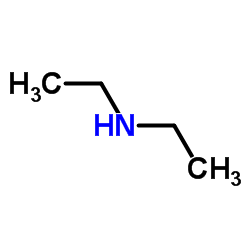
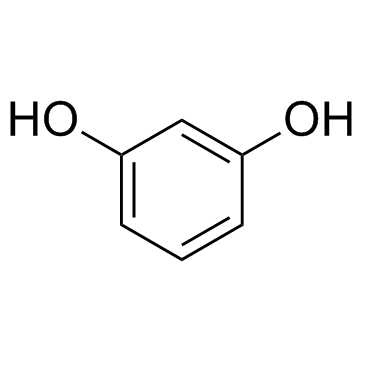
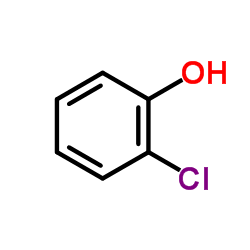
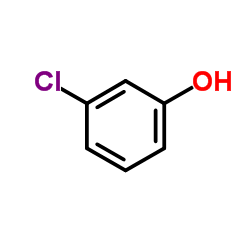
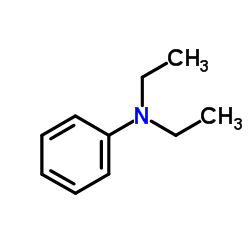
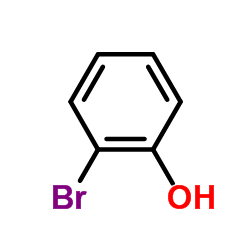



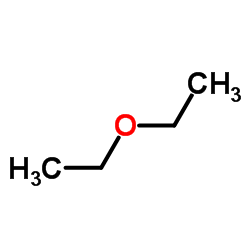
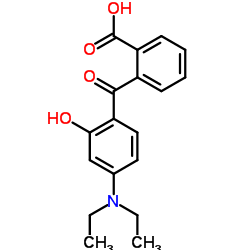
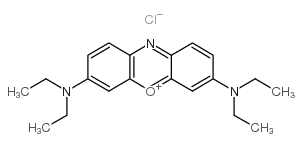

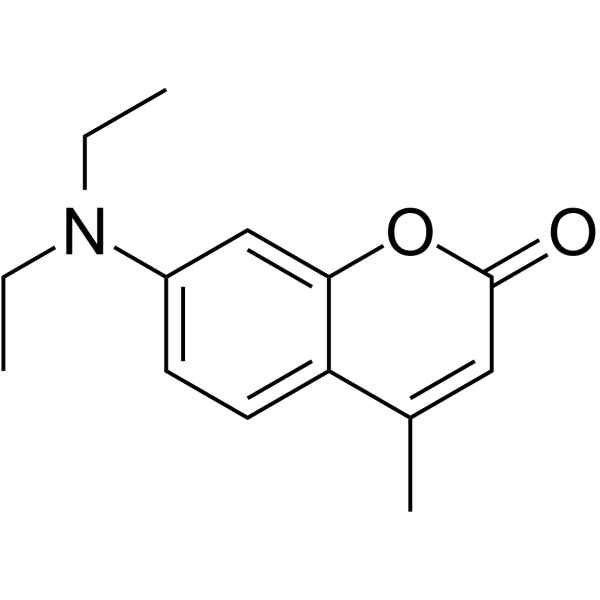
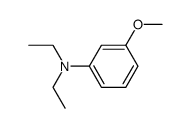
![[3-(diethylamino)phenyl] acetate结构式](https://image.chemsrc.com/caspic/288/18997-95-0.png)
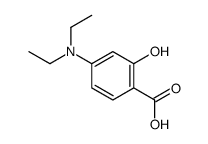
![3-(diethylamino)-6-[(6-methyl-1,3-benzothiazol-2-yl)hydrazinylidene]cyclohexa-2,4-dien-1-one结构式](https://image.chemsrc.com/caspic/328/23873-21-4.png)

